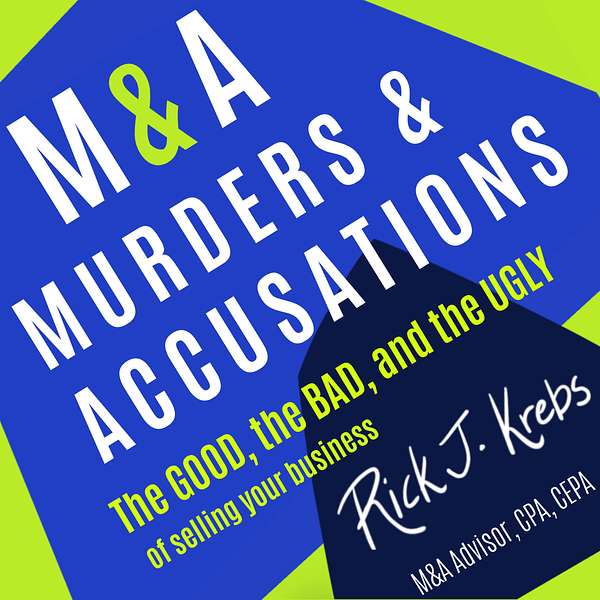
M&A Murders & Accusations: The Good the Bad and The Ugly of Selling Your Business
M&A Murders & Accusations: The Good, the Bad, and The Ugly of Selling Your Business! We dig deep into what you MUST know when selling your business. Learn how to NOT kill the sale of your business. Rick J. Krebs, the mastermind M&A Advisor (Mergers & Acquisitions, not Murders and Accusations) and expert at selling businesses, has transformed the lives of countless business owners by helping them secure the right buyer at the right price. You have only one chance to sell your business and this podcast will provide the vital information you need to know.
Brace yourself for mind-blowing discussions with industry experts and business owners who have already sold their businesses.
M&A Murders & Accusations: The Good the Bad and The Ugly of Selling Your Business
Navigating Business Puberty: Pimples, Braces and Proms with Guests Garrick Reevs and David Gowens
Join us with guests Garrick Reevs and David Gowens, the two guys who first coined the term: "Business Puberty". What is Business Puberty anyhow? What exactly does it mean? How does it apply to selling a business?
Why would a 30 year old company be considered a business still in Business Puberty? How do businesses mature and "grow up" and how does this impact the sale of a business?
Is your business stuck in puberty or is it ready to sell?
How to get out of Business Puberty
Contact David and Garrick by clicking below:
David Gowens
Garrick Reevs
Visit us at:
Bsalesgroup.com,
DesignMySale.com,
Audio file
Navigating Business Puberty, Pimples, Braces and Proms with Garrick Reevs and David Gowan 1.mp3
Transcript
Creeping toward the decade Mark, yes.
I love it. I love it. I wouldn't want to go back.
Very hard to quantify the metrics and the intangible metrics. Of the business.
You're an artist, Rick. You're artist. Just call yourself an artist.
Is there wasn't an agent in there?
Different conversation and a whole and a lot more fun as well.
So anyway, that was another fun one that a recent. Conversation we're having now.
Or break the ceiling on your goal and.
Break the ceiling on your goal.
Yeah, yeah, I love it. Hit the high mark. Right. You'd be the high marker industry. Right.
Meanwhile, I carry in your industry.
Reads this Revs little different so.
That sounds great. So once again, it's Garrick. Garrick. Revs. There's no ESS. It's re grants.
Correct, correct. Yep you got.
Yeah, because you. Want to put an A in but it's GOWENS gal yes.
